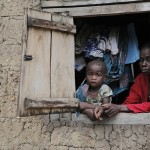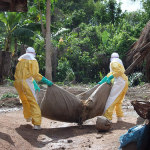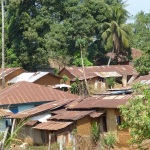Despite more than 25 documented outbreaks of Ebola since 1976, our understanding of the disease is limited, in particular the social, political, ecological, and economic forces that promote (or limit) its spread. In the following study, we seek to provide new ways of understanding the 2013-2015 Ebola pandemic. We use the term, ‘pandemic,’ instead of ‘epidemic,’ so as not to elide the global forces that shape every localized outbreak of infectious disease. By situating life histories via a biosocial approach, the forces promoting or retarding
Continue reading →
I’m trying not to make my commentary about the current Ebola outbreak about representation, but I’ve been a bit troubled by the political analyses accompanying the epidemiological and health systems ones. Specifically, I want to talk a bit about how Liberia’s and Sierra Leone’s civil wars have been deployed by these analysts to understand the response to the outbreak and how explaining existing tensions requires some deeper knowledge about local context. Laurie Garrett’s recent opinion piece on CNN and her appearance on Melissa Harris-Perry’s show are both examples of
Continue reading →
And he told them about this new God, the Creator of all the world and all the men and women. He told them that they worshipped false gods, gods of wood and stone. A deep murmur went through the crowd when he said this. He told them that the true God lived on high and that all men when they died went before Him for judgment. Evil men and all the heathen who in their blindness bowed to wood and stone were thrown into a
Continue reading →


